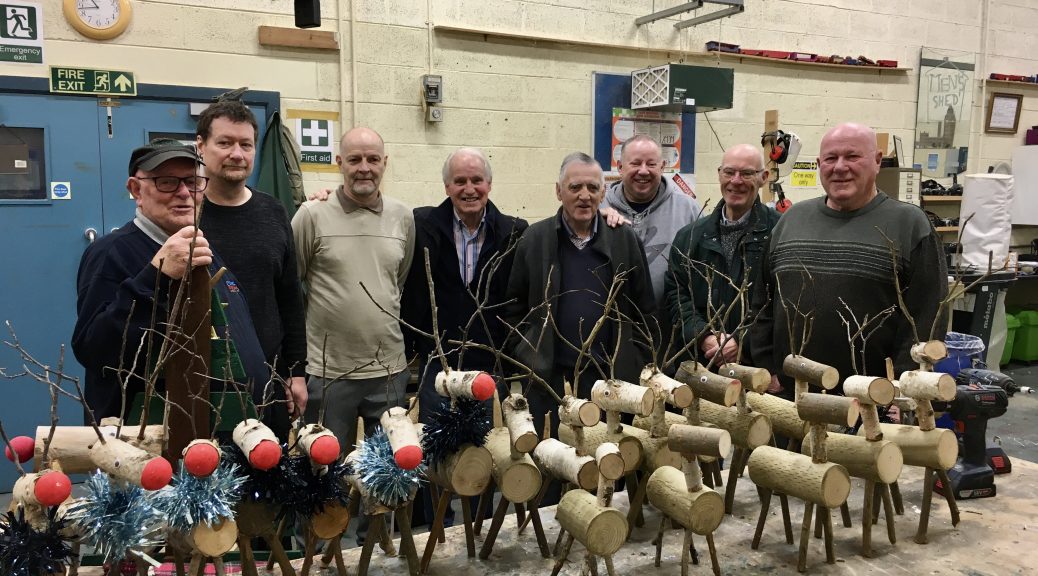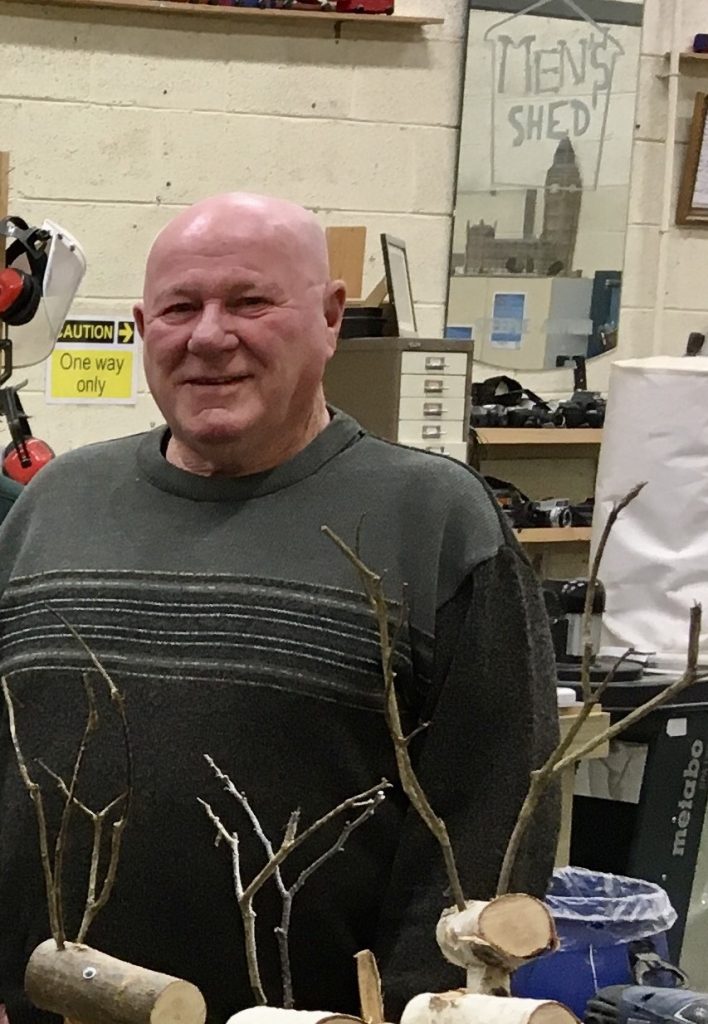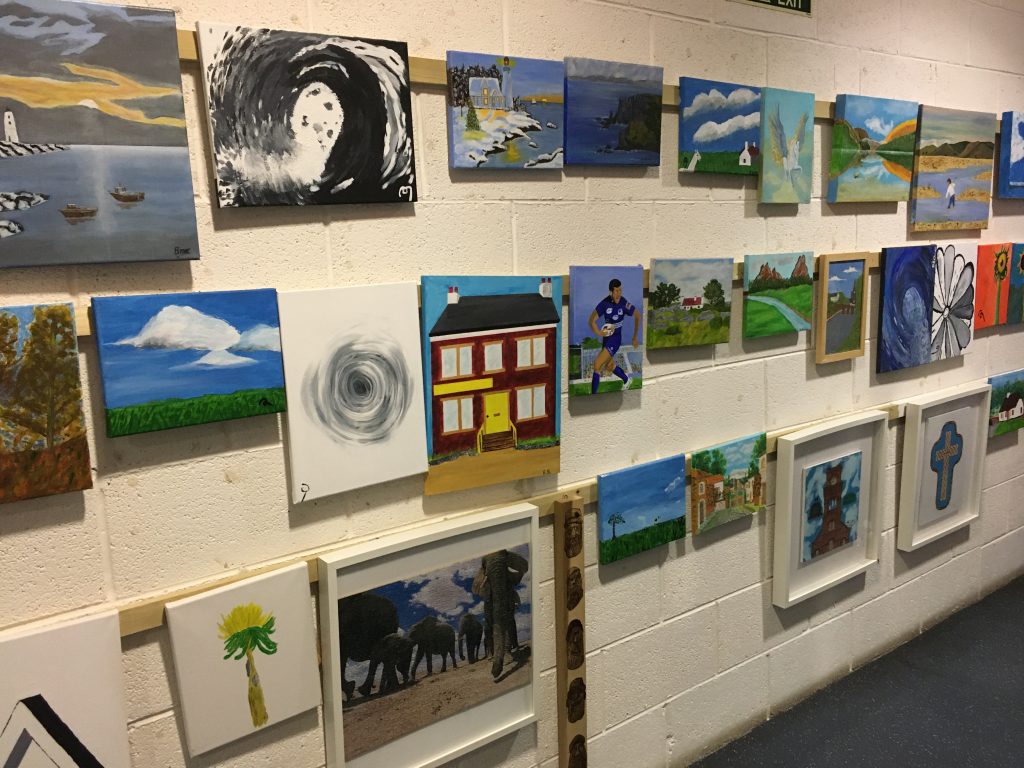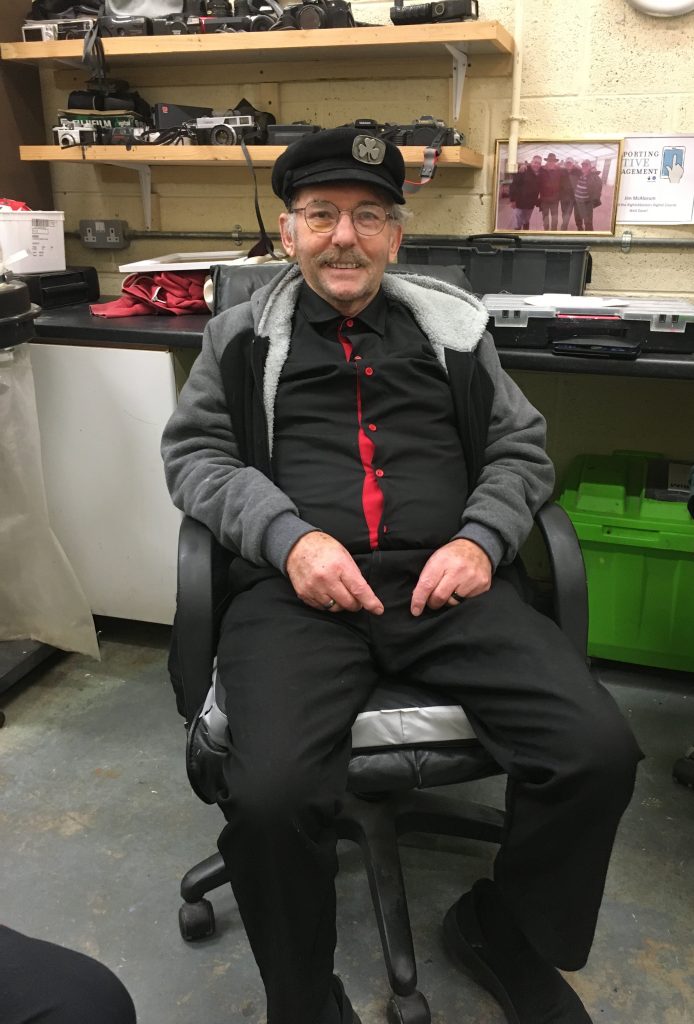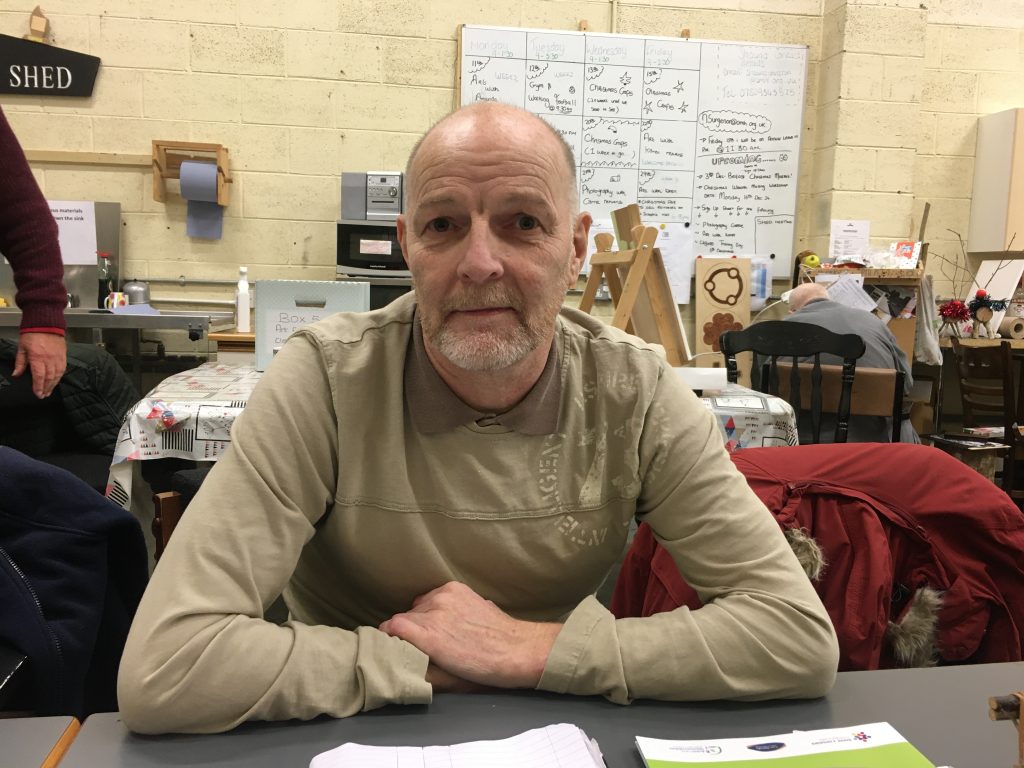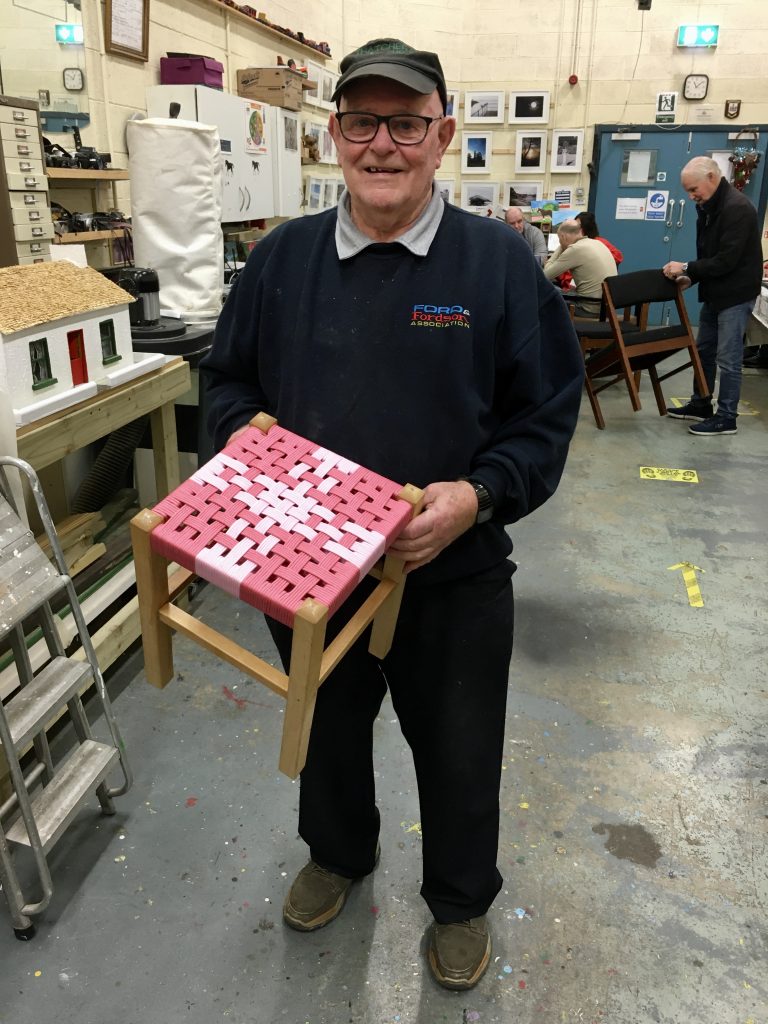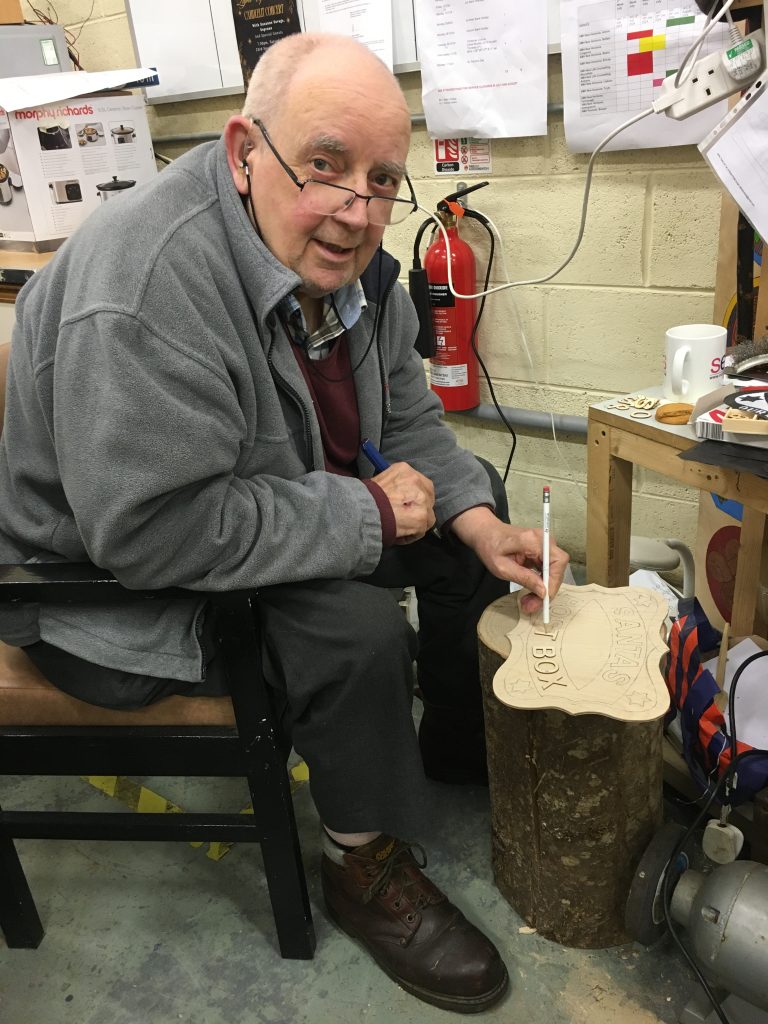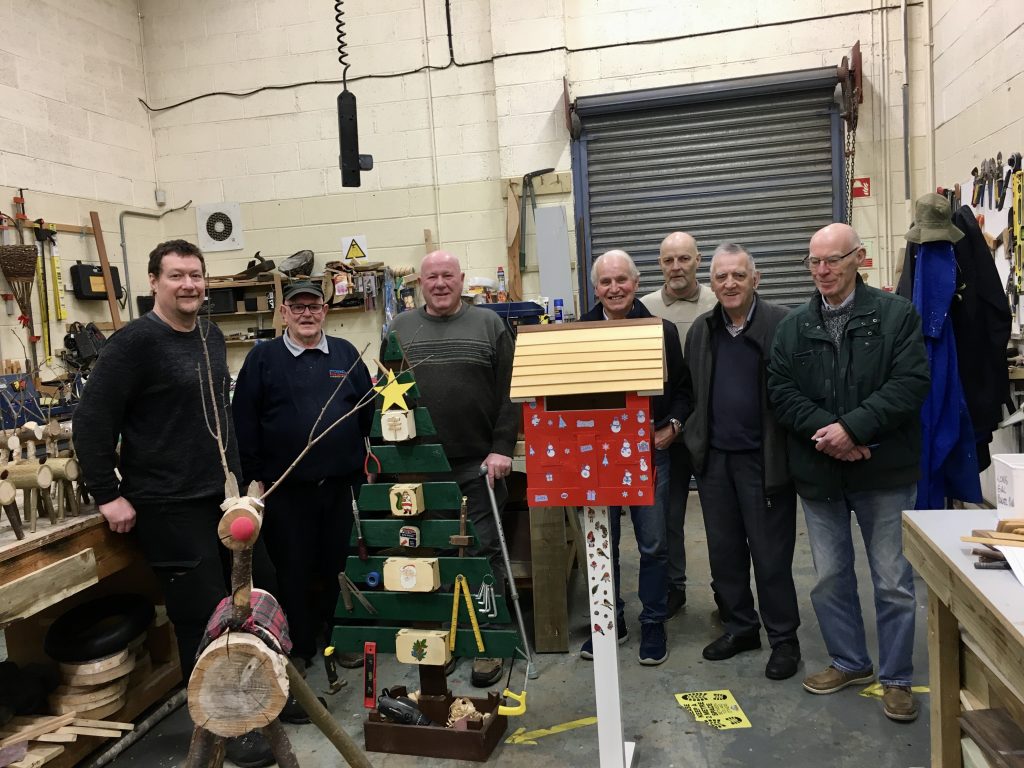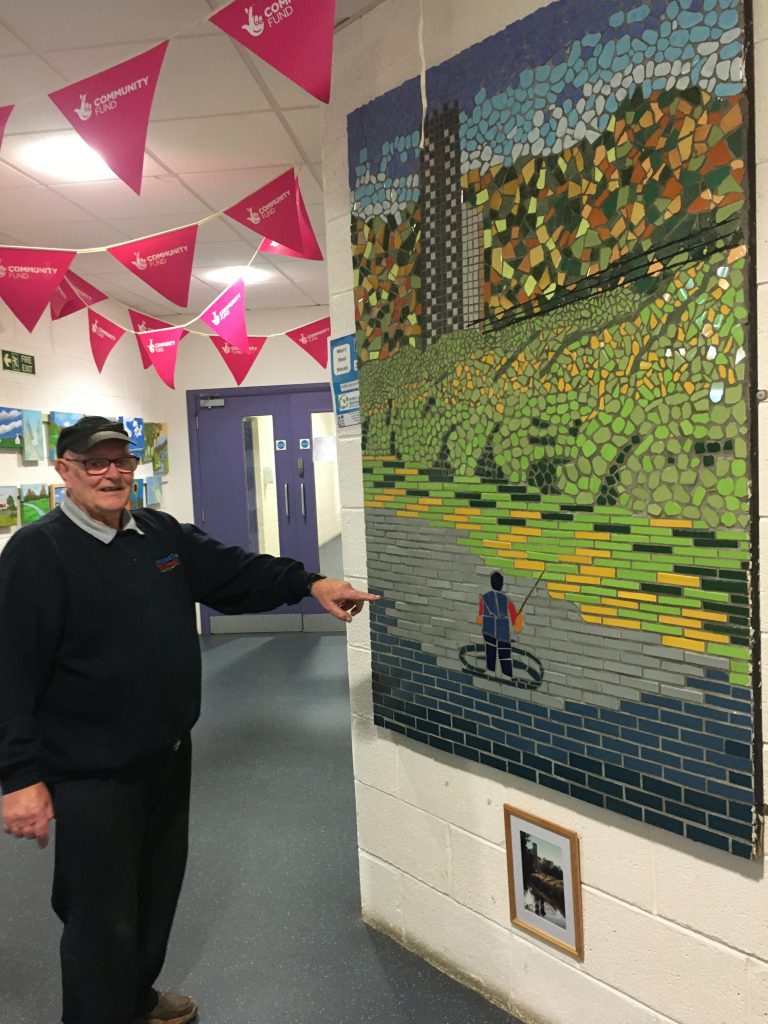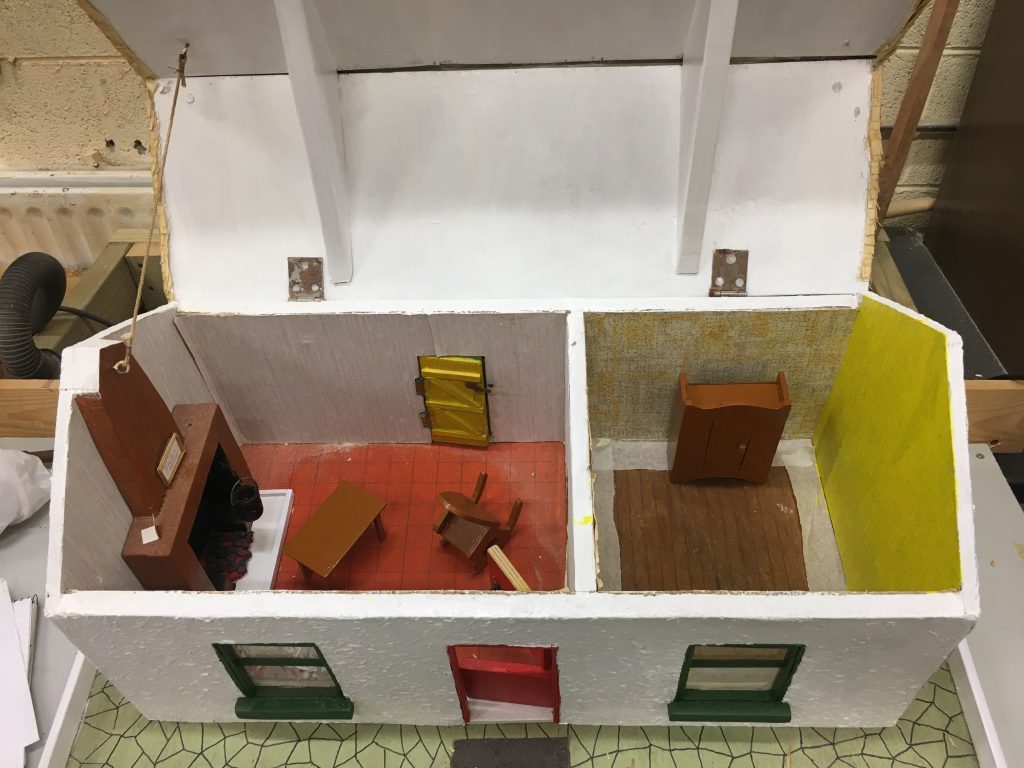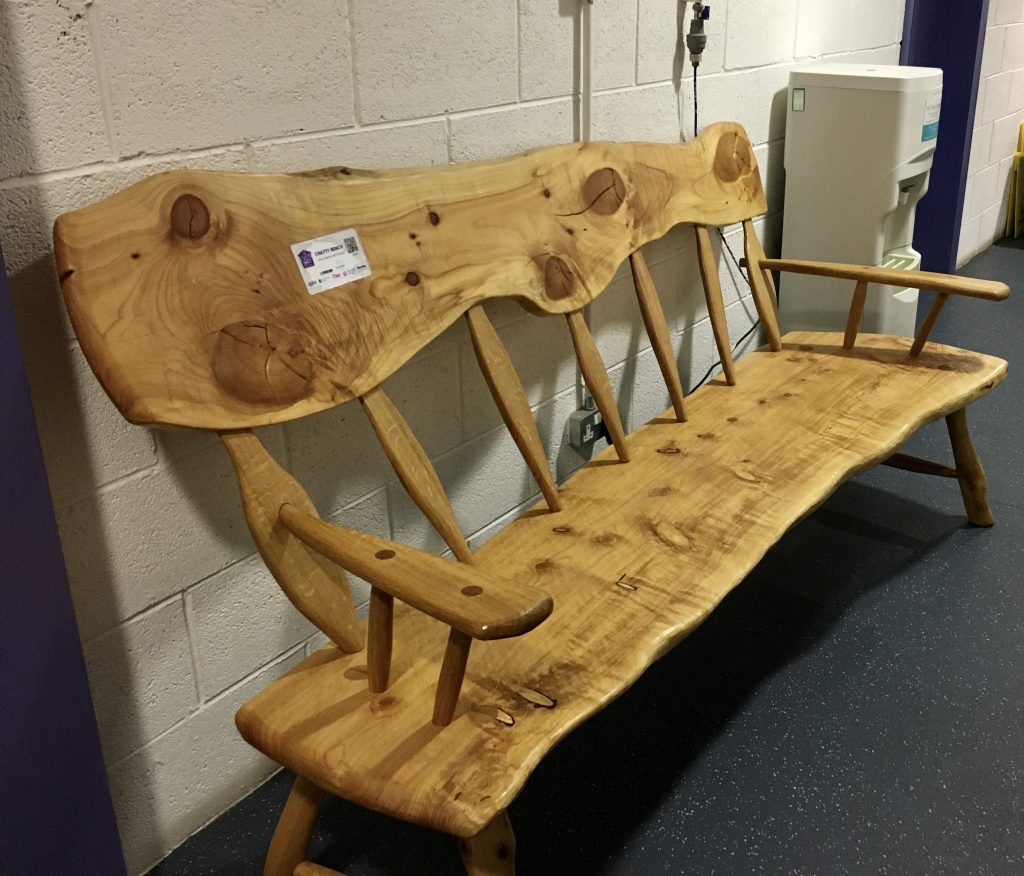For our second blog this Men’s Mental Health Awareness Month, we paid a visit to one of Action Mental Health’s three Men’s Sheds, to chat with the members and find out why they love going along…
Known affectionately as ‘the Shedders,’ the team at Men’s Shed Steeple Antrim, which sees an average 15-20 people attend four days a week, are a very welcoming – and busy – bunch. With a focus on fun, friendship and learning new skills, the Shedders do everything from woodcarving, photography and cooking to singing, pyrography and much more.
Having won the Community Champion award from the South Antrim Community network in 2024 for “creating opportunities to build capacity or bring innovative ideas to the community,” this is a group which benefits both members and the wider community.
It’s clear from the outset just how much everyone enjoys coming to the Shed during the week, with one member saying that, “We have a great community.” Other members add that the Men’s Shed “gives us a purpose” and that “it’s all about having fun.”
A longstanding member of Men’s Shed Steeple Antrim, Gerry was one of the first to join the group, when it launched around a decade ago. The Men’s Shed phenomenon had reached Northern Ireland and Action Mental Health decided to set one up in Antrim. Having recently retired, Gerry found out about the plans for the Steeple Antrim Shed from his daughter, who was working at Action Mental Health at the time. She suggested he go along but he wasn’t very keen, initially.
“I didn’t want to be retired and be around old people, so I didn’t go,” he said. “But it was going to fold if they didn’t get enough members, so I came up. I got some people to join and never looked back.”
As one of Northern Ireland’s first Men’s Sheds, he said that Antrim Steeple led the way at that time and was a great place to mix with people and meet new friends – which, of course, it still is.
“I enjoy the craic,” he said. “I was always used to getting up early for work so it’s a reason to get out of bed and come in and meet your friends in here. Some of us actually socialise outside of here as well! We’d maybe get the train to Dublin for the day.
“The craic is good and there’s the freedom to go down to the garden too, amongst the plants. What would the men be doing, otherwise?”
Magic moments down in the Shed
With recent research [1] revealing that 17% of men in Northern Ireland showed signs of loneliness in 2022/23 – 20% of these aged between 55-64 and 16% aged 65-74 years old – initiatives like the Men’s Shed are an ideal way to help combat this. Creating community spaces where men can gather to enjoy a cup of tea and some craic – as well as the opportunity to take part in a whole host of activities (optional, of course), is a concept which obviously works.
Ronald, who’s originally from South Africa but is now settled in Northern Ireland, joined Men’s Shed Steeple Antrim a year ago and keeps the crew entertained with his magic tricks, which he happily demonstrated during our visit.
“My library told me about the Men’s Shed, so I thought I would come and check it out,” he said. “It gets me out of the house. When I don’t come here, I go lawn bowling.”
Russell is another Shedder who has been part of the Antrim Steeple group for just over a year, having heard about it when he was seeking employment support. Describing himself as an anxious person, he said it was a couple of months before he managed to get along but that, once he did, he wished he’d done it sooner, as he enjoyed it so much.
“I was suffering from depression and anxiety,” he said. “Getting your feet in the door is the hardest part but one day I just got it into my head to go. I was walking by and called in. I wish I had done it earlier.
“I was doing courses with the ESA – getting back to work schemes – but they weren’t for me. I found this better – more relaxed. This place is completely different. You can take your time at things. When I came, I initially thought, ‘what have I got myself into here?’ I didn’t know anybody at all. It’s daunting at the start. I was always a quiet person so it’s brought me out of myself a bit.”
Explaining that his approach now in life is to take everything as it comes, Russell said that when new members come to the Shed, they can always expect to be made welcome with a cup of tea and some chat.
He added: “It’s up to the individual, though – you have to be ready for it. I think men don’t come sometimes because they’re scared.”
Reflecting on the fact that November is Men’s Mental Health Awareness Month, Russell said he thought it was difficult with men – particularly those from previous generations – as they often bottled things up and didn’t address their mental health.
“Some older men don’t like talking about things,” he said. “They keep everything in. I didn’t talk much at the start [when I came to the Shed] because I didn’t want to bother anyone. But people listen. Everyone here’s in the same boat. They’re a good crowd of people.”
With his favourite aspect of the Men’s Shed the various activities, Russell added that he’d learned lots of new skills and done all sorts of things he’d never tried before – or thought he would, such as wood-carving and painting.
“There’s always new things to try out,” he said. “For example, Francesca from Action Mental Health did a course with us that I found helped with my anxiety. I try everything. I would do a lot of the OCN courses and am part of the gardening group too. It gets your mind working again and gives you more confidence.”
At the time of our visit, the Shedders were adding the finishing touches to a Christmas post box they’d made for a local supermarket, while they also had a herd of wooden reindeer lined up and ready to go on display at the Enchanted Winter Garden in Antrim.
“It’s about going out into the community as well,” said one of the men. “They give us a donation but it’s not only about selling what we have. We’ll be talking about the Shed as well and letting people know about it.”
Whether it’s getting out and about to spread the word about the Men’s Shed, enjoying a cup of tea and conversation or getting stuck into gardening or general grafting, it seems the Shedders are on to a good thing…
The Shedders will be selling their Christmas crafts on Friday, November 29 at St Joseph’s Parish Community Hall in Antrim from 6pm-8pm.
The Men’s Shed Steeple Antrim meets Monday-Wednesday and on Fridays and is funded by the National Lottery’s Community Fund.
Find out more about Men’s Shed Steeple Antrim on their Facebook page here: https://www.facebook.com/MensShedSteepleAntrim?locale=en_GB
Find out more about Action Mental Health’s other Men’s Sheds in Downpatrick and Fermanagh here: https://www.amh.org.uk/services/mens-shed/
Reference: [1] Devine, P. (2024). Men’s Health in Numbers: Northern Ireland Men’s Health Report Card 2024. Dublin: Men’s Health Forum in Ireland. Available at: https://www.mhfi.org/MensHealthInNumbers3.pdf




